Most Buds customers end up choosing a rectangular or kidney-shaped pool, but that doesn’t mean the decision on pool shape is easy. Some know exactly what they want and there’s no swaying them (even when another shape might better suit their landscaping or fit their space). Others agonize over the decision—and we don’t blame them. It’s not like you can change your mind once the pool’s installed. If you’re undecided on shape or there’s a difference of opinion in your family, consider these 6 factors to make the decision easier.
-
1. Space
What’s the shape of your yard, and how much room do you have? Where will you put the pool? Are there any trees or other landscaping features that you want to preserve? Do you want to add features like a lounging area with an outdoor fire, eating area or outdoor kitchen? If so, where do you want them in relation to your pool? The regular shape of a rectangle makes it easy to create “zones” in your yard for different types of activity. An irregularly shaped property may be a good choice for a free-form, figure 8 or kidney-shaped pool. Have an ‘L’-shaped yard? Go for an ‘L’-shaped pool. Wondering what these different pool shapes are? We’ve got an article on that, too!)
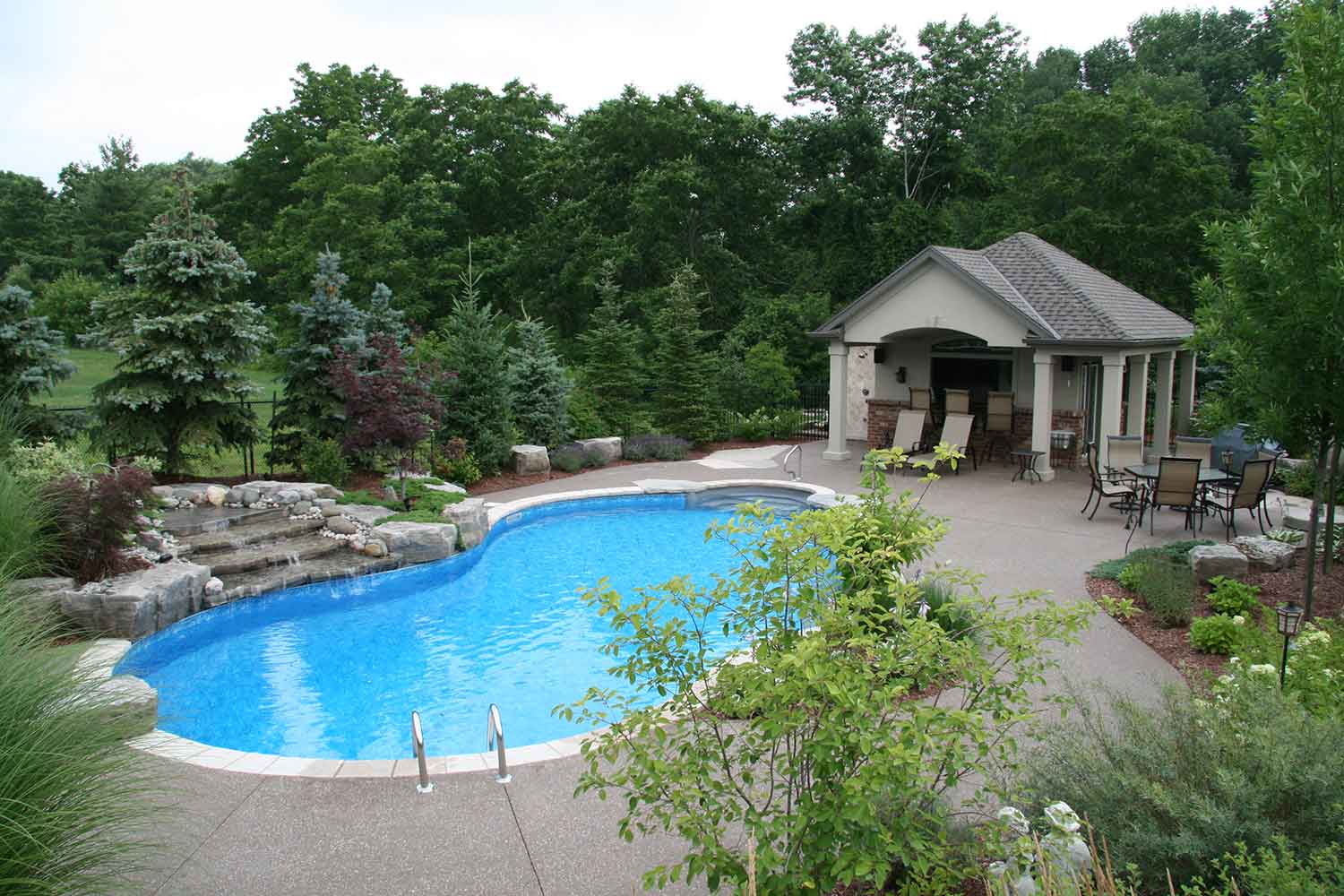
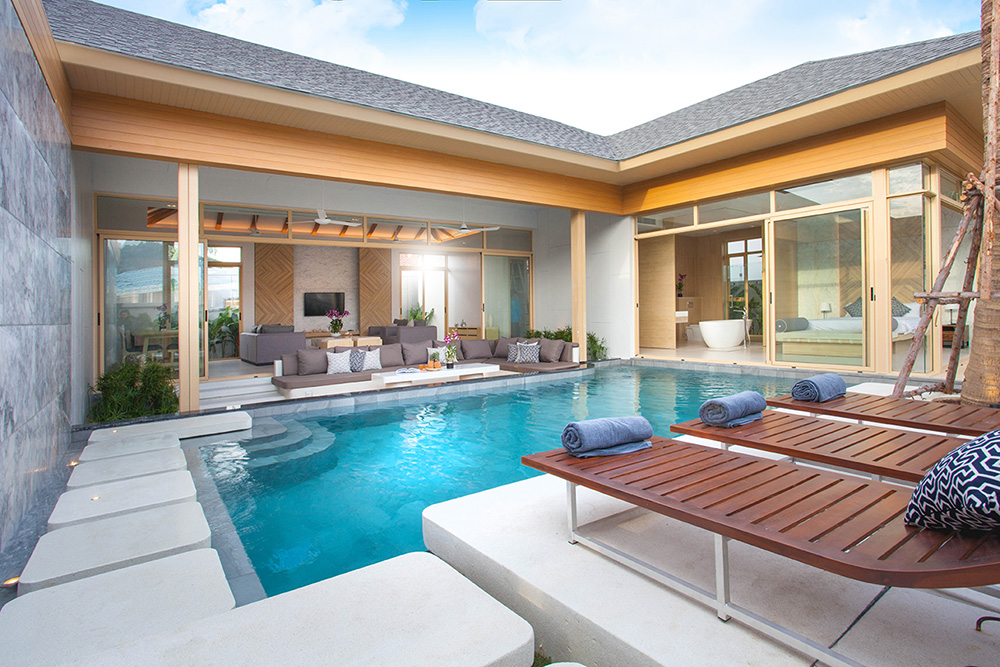
-
2. Appearance
Consider the architecture of your home and any other buildings on your property. The best way to do this is to stand in your yard and look at the back of your home, then go inside and look out at your yard. What shape would complement both views? A modern home with strong geometry may lend itself better to the straight lines of a rectangular or ‘L’-shaped pool. A rambling home or English cottage could suit a free-form shape, which can mimic a pond and works well with rocks and other natural landscaping features. A bungalow from the 50s or 60s or a contemporary (but not “modern”) home might be perfect for a kidney shape. Classical architecture and formal landscaping pair best with a Grecian or Roman design.
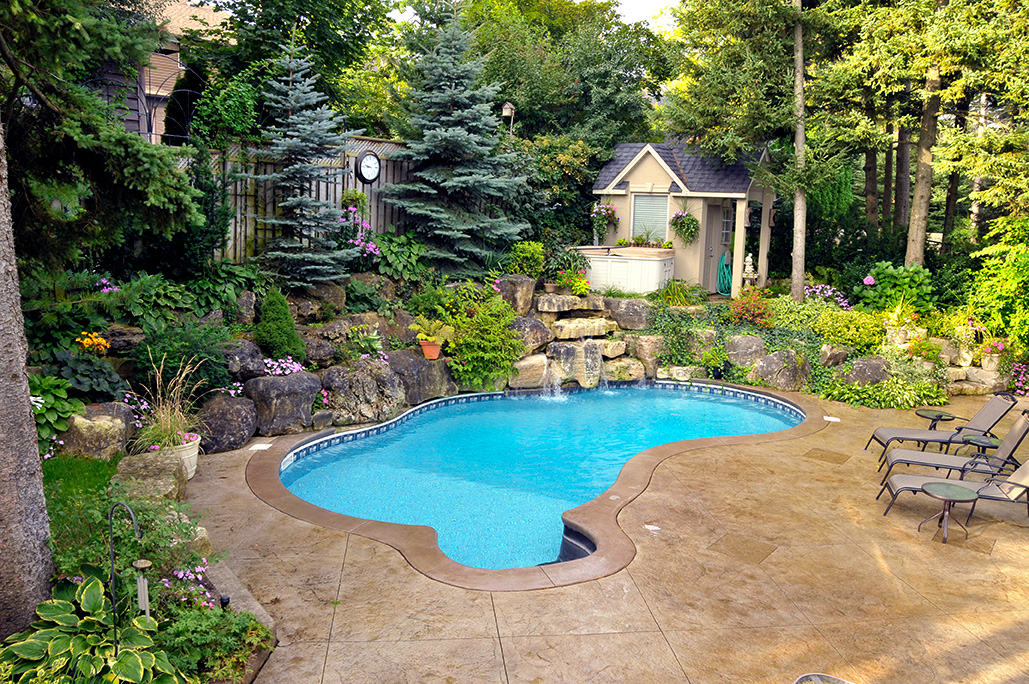
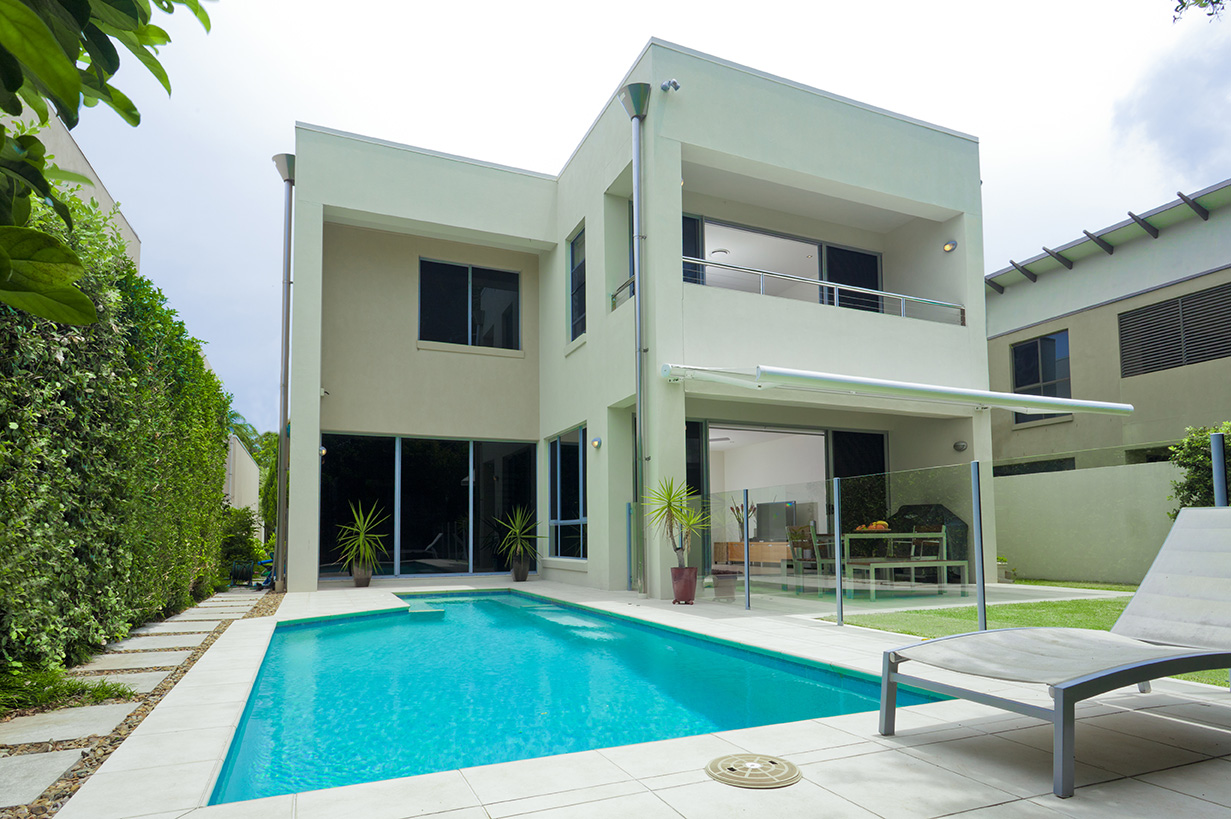
-
3. Functionality
Rectangular pools are best for laps or sports. Do you want to be able to dive? Choose a shape, such as a rectangle, lazy ‘L’ or kidney that can easily include a deep end. If younger children will swim in the pool, consider a regular shape for safety’s sake, since irregular curves and hidden corners may make it more difficult to keep track of little swimmers. If lounging is your priority, a round, oval, kidney or free-form shape would fit the bill. Want to designate certain areas of the pool for specific activities? A figure 8, kidney or L-shape works well.
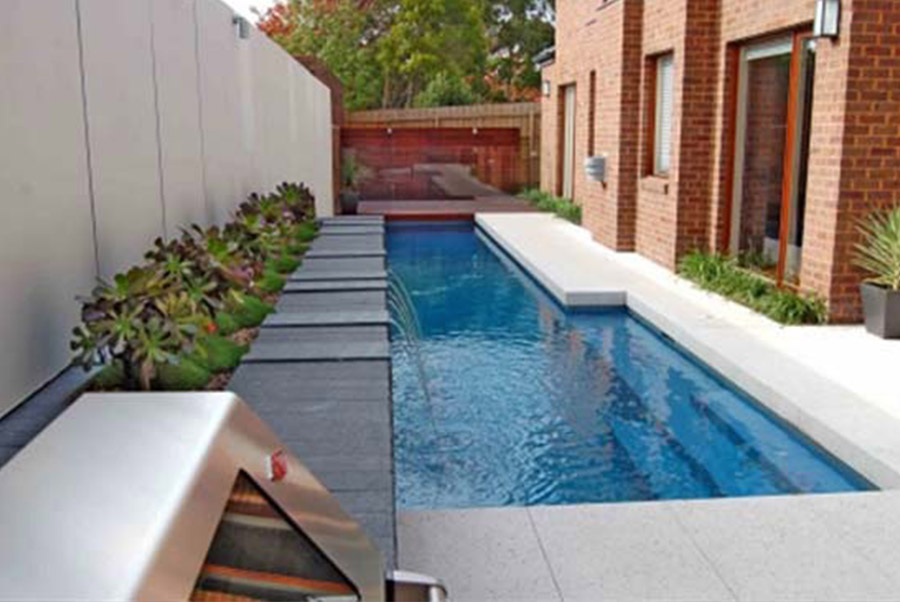
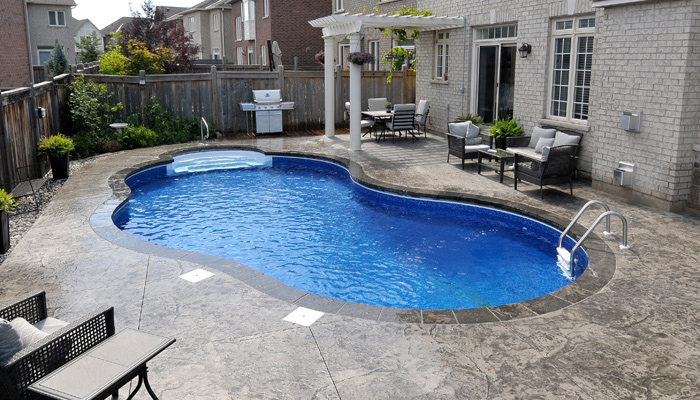
-
4. Features
Think about the structural and decorative features you want to include in your pool project. An attached hot tub will change the shape of your otherwise plain rectangle, for example. If you want a water feature, what “look” do you like—formal fountain, rock waterfall or something else? Kidney shapes offer opportunities to add bench seating or a tanning ledge at the indentation point. Rectangular pools are very versatile in terms of ledges and in-pool seating. Would a slide look better with a kidney or free-form pool in your particular yard?
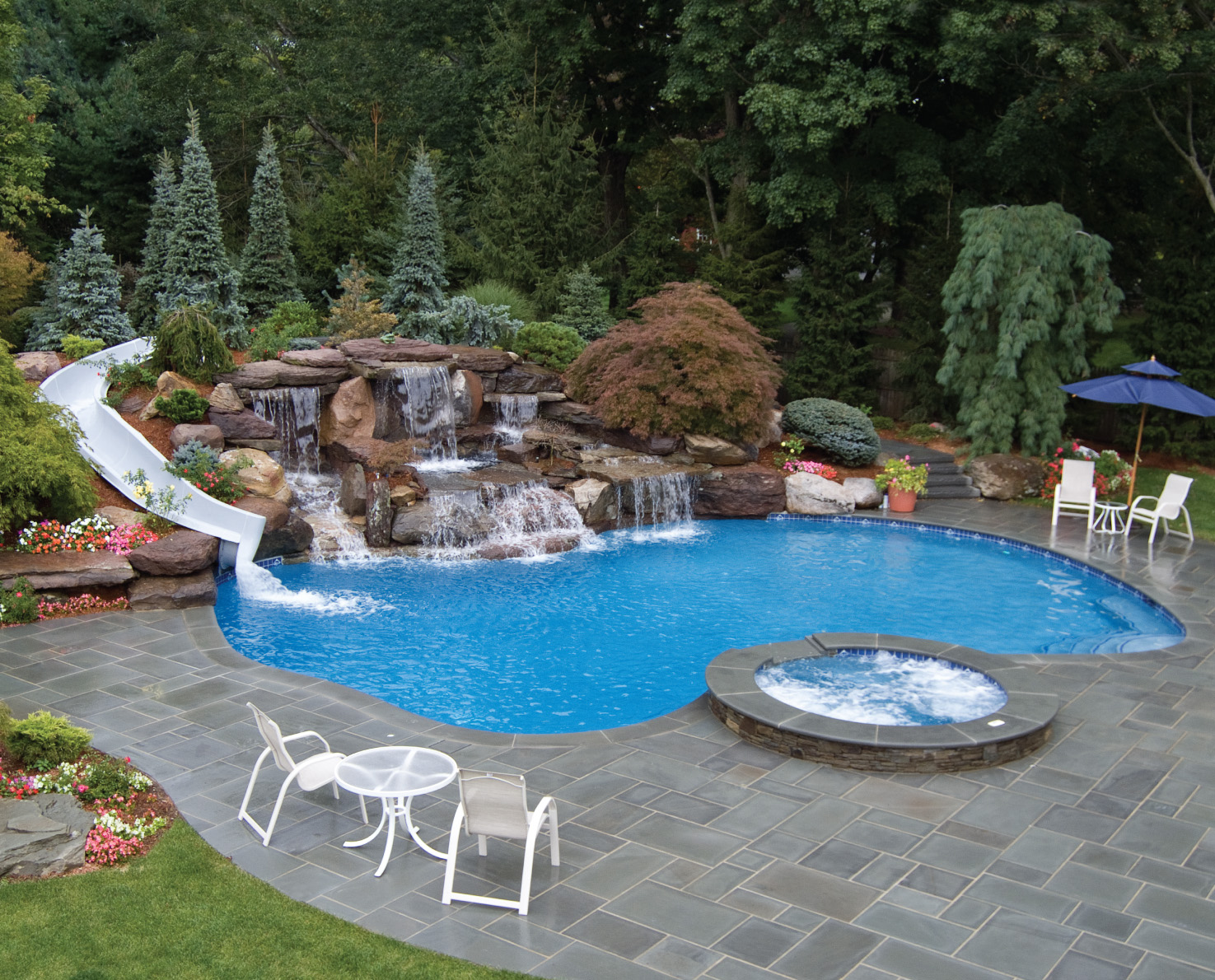
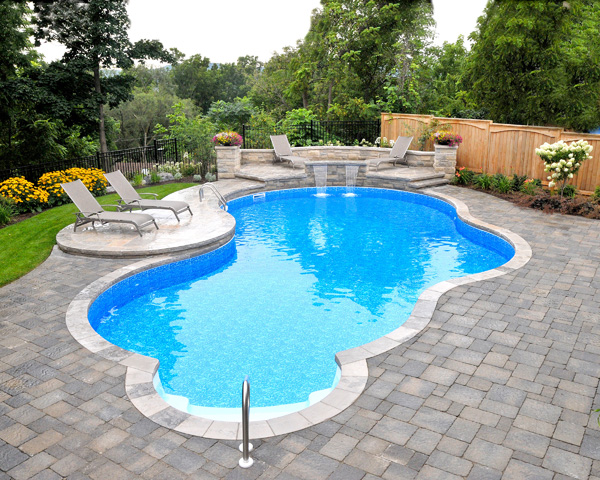
-
5. Budget
In most cases, pool shape doesn’t influence the price of a vinyl-lined or fiberglass pool. If you’re considering concrete (also known as gunnite), however, the more intricate the shape the more expensive the installation. (If you can afford a concrete pool maybe price isn’t an issue for you, though!)
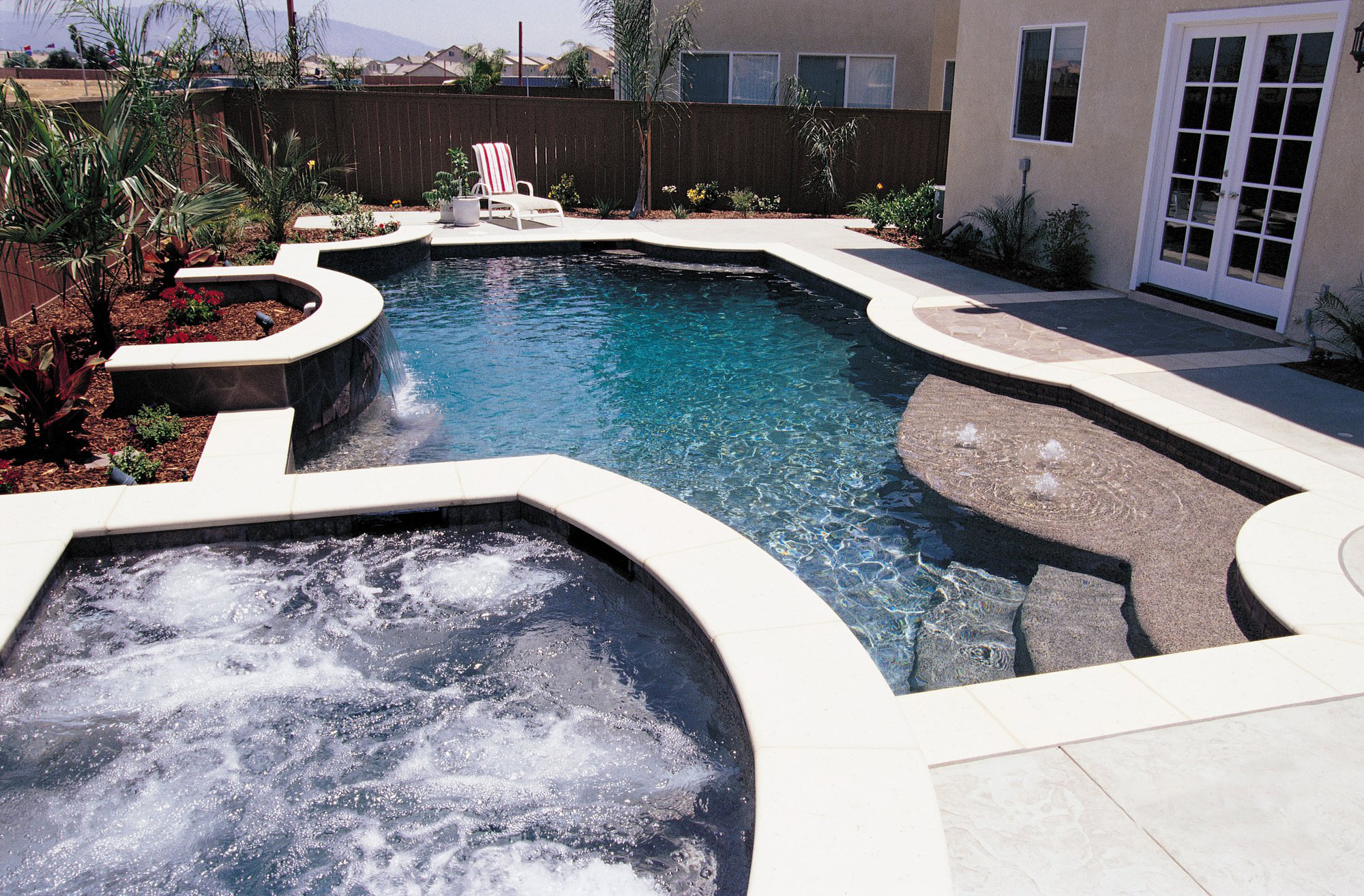
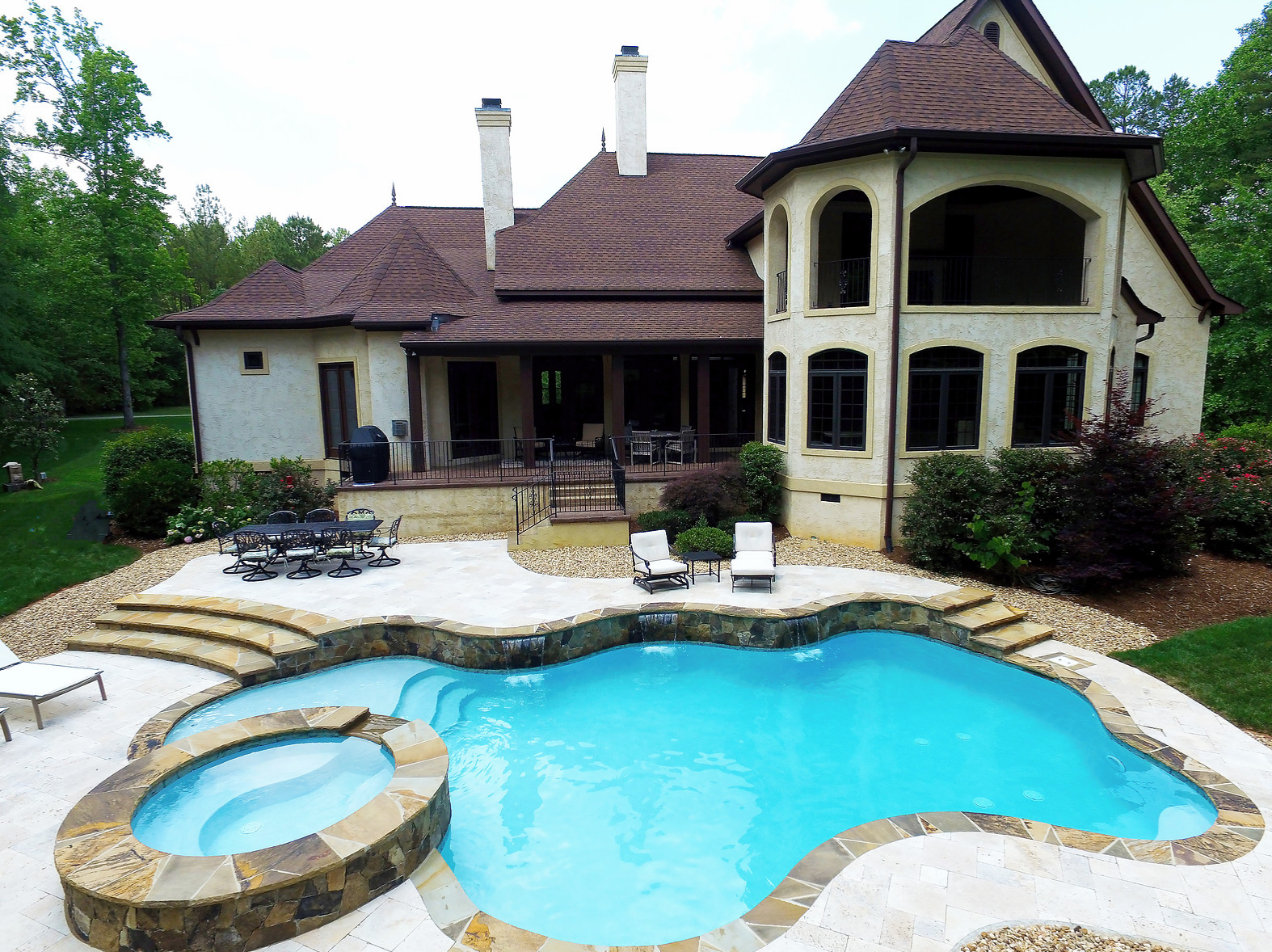
-
6. Type
If you want a vinyl-lined pool, the only limitation on shape is your imagination. A fiberglass pool, on the other hand, comes in a limited range of predetermined shapes.
Now you’ve got everything you need to choose a pool shape, how about landscaping? This article covers our top tips for landscaping around pools to keep your plants—and your pocketbook—happy.
RELATED ARTICLES

Luna + Solei: 24/7 Pool Care That Works While You Rest and Play
Luna + Solei: 24/7 Pool Care That Works While You Rest and Play What if pool care worked around your schedule-not the other way around? With Luna + Solei, you can finally enjoy a backyard pool that’s clean, clear, and low maintenance-without constant testing, shocking, and balancing. This revolutionary Day & Night Pool Care System…
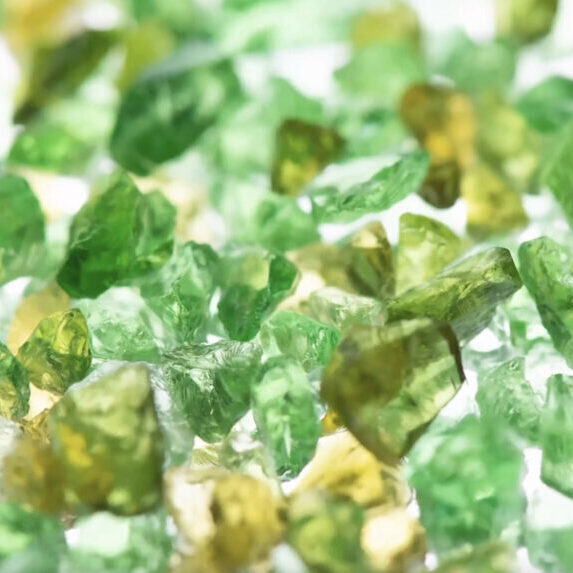
Upgrade Your Pool Filtration with AFMng: Say Goodbye to Sand, Hello to Sparkling Water
UPGRADE YOUR POOL FILTRATION WITH AFMng: SAY GOODBYE TO SAND, HELLO TO SPARKLING WATER If you’re still using sand in your pool filter, it’s time to rethink your water care. At Buds, we’re always on the lookout for the best solutions for our customers-and AFMng is a game-changer. Made from recycled, activated glass, AFMng is…
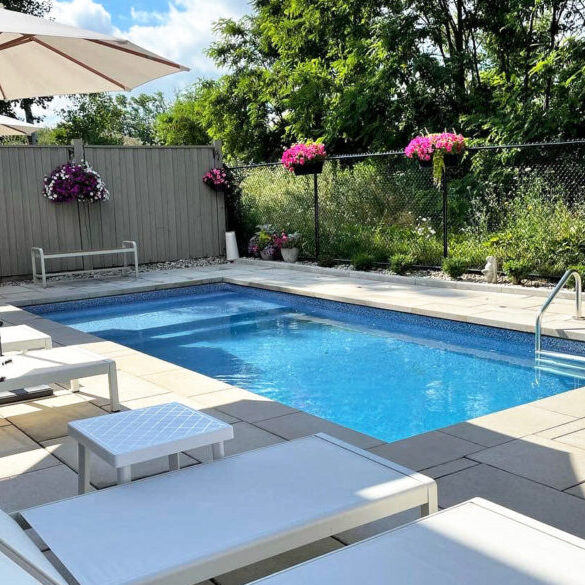
Plunge Pool vs. Traditional Swimming Pool: Which One Is Right for You?
Plunge Pool vs. Traditional Swimming Pool: Which One Is Right for You? When designing your dream backyard oasis, one of the biggest decisions is choosing between a plunge pool and a traditional swimming pool. While both offer the joys of relaxation and recreation, they differ significantly in size, maintenance, cost, and suitability for various lifestyles…
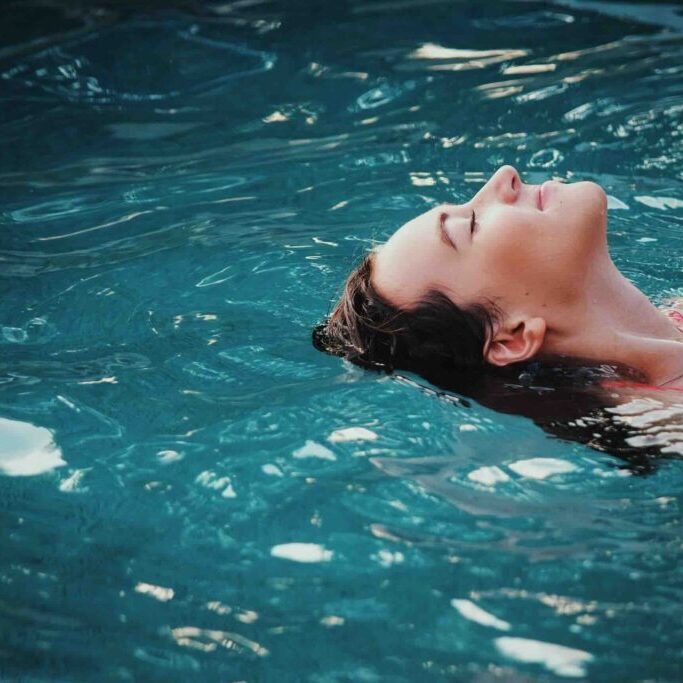
What is a plunge pool, and should I get one?
What is a plunge pool, and should I get one? If you’ve been researching pools at all this year, you may have noticed that plunge pools are seriously trending. While you probably have some idea of what a plunge pool is all about, you might be wondering about the specifics that make these pools different…
![swimming-pool-small-yard-9 Photo: Hydropool [swim spa]](https://budsspas.com/wp-content/uploads/bb-plugin/cache/swimming-pool-small-yard-9-square-57235efa5c8b11df53a00ee0c9a24018-.jpg)
Treating Biofilm in a Swim Spa
How to Treat Biofilm in your Swim Spa What is Biofilm? Biofilm in hot tubs refers to a complex community of microorganisms that adhere to surfaces and form a slimy, protective layer. Biofilm can develop on various surfaces within a hot tub, such as the walls, pipes, and filters. IMPACT Reduced effectiveness of sanitizers: The…
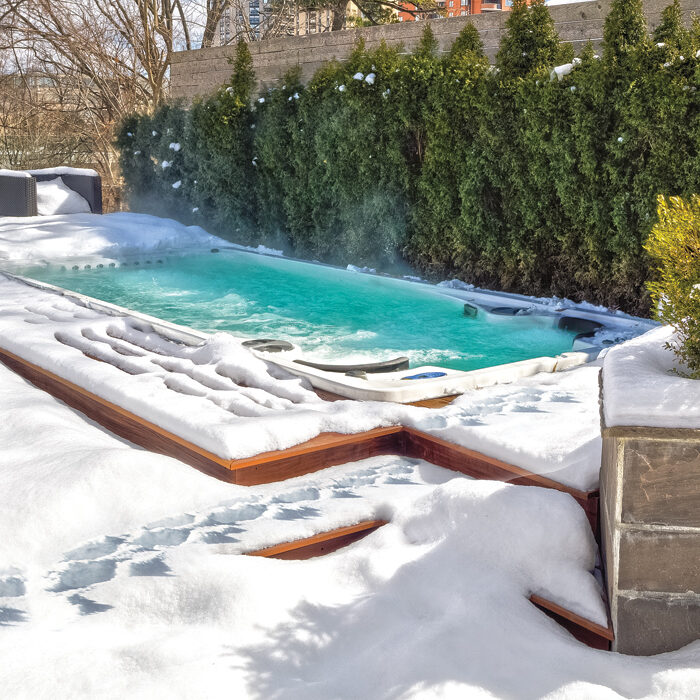
Swim spa winterization guide
how to prepare your swim spa for the winter Winterizing your swim spa properly is extremely important to ensure that all the lines and equipment do not freeze and crack over the winter. Drain spa as per normal procedure. Remove pillows, the skimmer basket and the filter(s) from the canister. Chemically clean your filter(s) with…
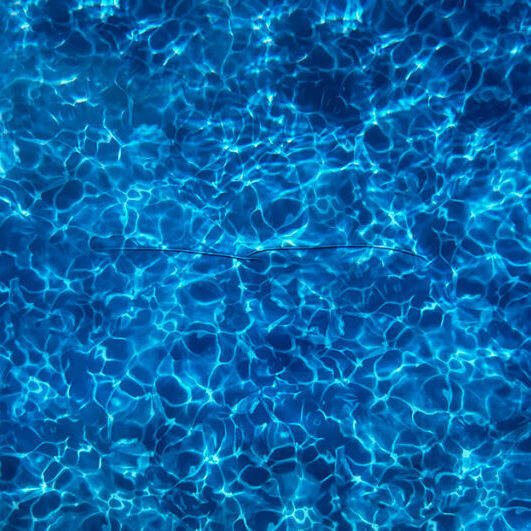
Understanding and Addressing Pool Liner Wrinkles
Understanding and Addressing Pool Liner Wrinkles When it comes to pool liner wrinkles, it’s crucial to distinguish between those caused by installation issues and those arising from other factors. If a wrinkle appears due to a poor fit or incorrect measurements during installation, it will be evident as soon as the pool is filled. Wrinkles…

What is a Pool Orientation and Why is it Essential for New Pool Owners?
What is a Pool Orientation and Why is it Essential for New Pool Owners? Owning a pool is a luxury that brings fun, relaxation, and a perfect gathering spot for family and friends. However, with this luxury comes the responsibility of maintaining and managing your pool to ensure it remains a safe and enjoyable space.…
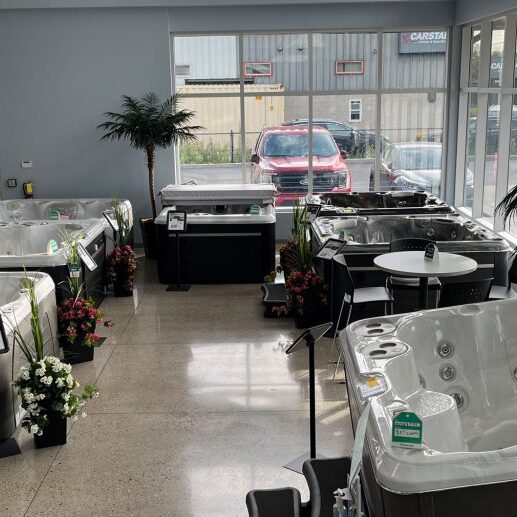
Benefits of In-Person Shopping for Hot Tubs, Pools & Swim Spas
We know that online shopping can be convenient. But at Buds we still believe that hot tubs, swim spas and pools, not to mention their parts and supplies, are best shopped for in person.
So while you might start your shopping journey online, we hope that you’ll take the chance to visit us in store before finally making your purchase.
There are many reasons why we think brick-and-mortar stores like Buds are the smart choice for customers.
Check out our top reasons and let us know if you agree!
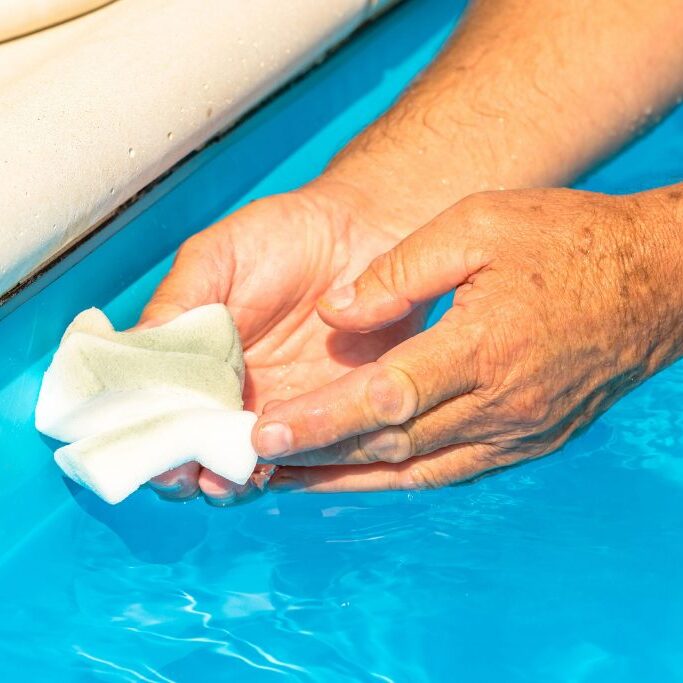
How to Treat and Prevent Metals and Staining
How to treat and prevent metals and staining Metals and Staining in a Pool Metals can be introduced to the water through foreign object or equipment such as: Copper piping and fittings, Heat exchanger, Using Copper Sulphate and other copper-based algaecides, Source water. Metals in pool water may cause staining to the liner, fiberglass, or…

Should I finance my pool purchase?
In its most formal application, contrast hydrotherapy involves alternating between immersion in hot and cold water. It’s a practice with growing popularity among athletes and health enthusiasts for its many reported benefits.
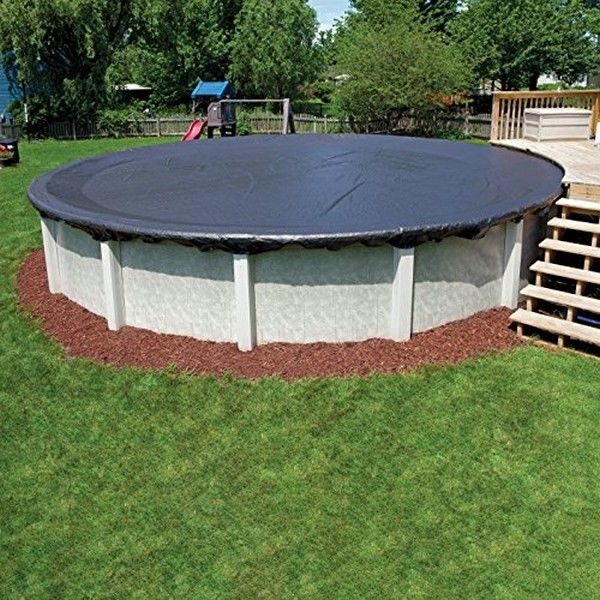
Above Ground Pool Closing Instructions
How to close your above ground pool Pool Closing Steps 1 One week prior to closing, bring a pool water sample to the store so your pool can be properly balanced. It is natural for sitting water to become acidic on its own, so balancing the water is very important prior to closing your pool.…
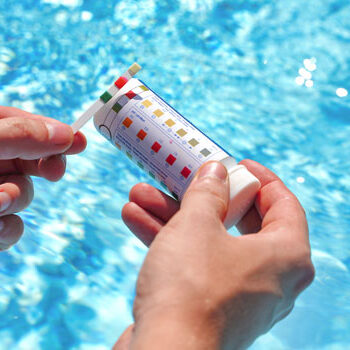
The Benefits of Borate to Treat Your Pool
Why Your Should Use Borate In Your Pool What is Borate? Borate prevents pH drifting, which results in calcium scaling, metal stains, cloudy water, algae, and hard pool water. When you use borate, the water will remain clear for a long period since chloramine (or combined chlorine) does not form quickly as compared to a…
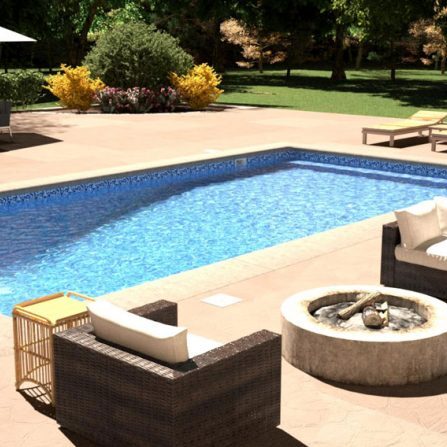
How to Reduce Phosphates in Your Pool
How to Reduce Pool Phosphates What are phosphates? Phosphates are food for algae. Although they are present in all water, once they reach a certain level they can cause issues in your pool. Phosphates can consume chlorine causing a consistently low level in your pool. When you have an extremely low chlorine reading, your pool…
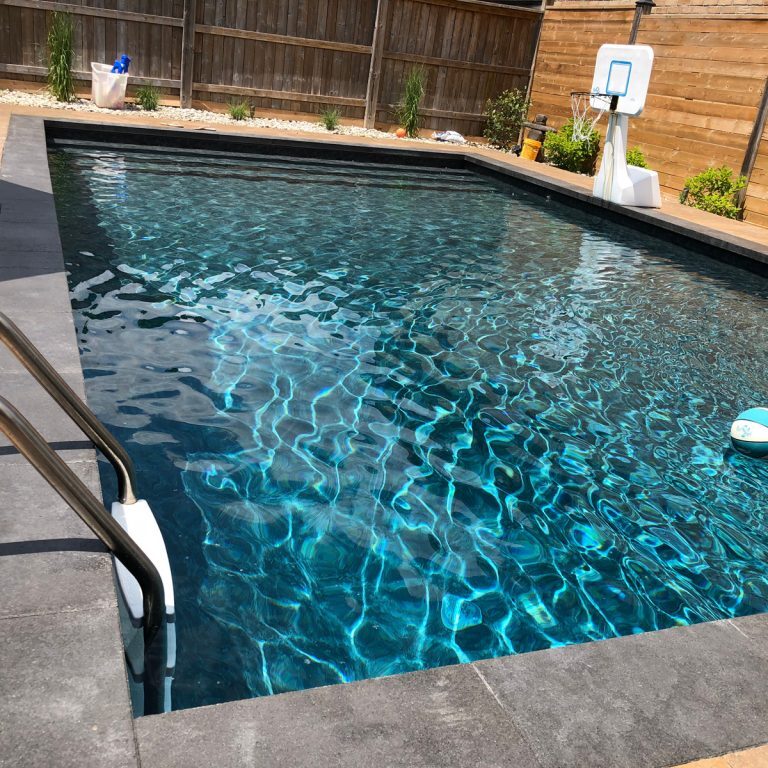
Spring Set-up for Pool UV Systems
How To Open Your Pool’s UV System SET-UP INSTRUCTIONS When spring arrives, it’s time to pull out your UV system and get it ready for the summer pool season. Below is a checklist that will help in getting the most out of your system. If your UV system is still installed on your pool equipment,…
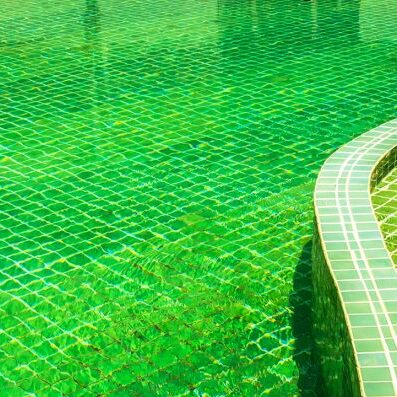
How to Treat Pool Algae
How to Treat and Prevent Algae How to Treat and Prevent Algae during Spring Opening Warning: when following these steps, DO NOT use your automatic vacuum as there is no option of vacuuming on waste/drain. Bring a pool water sample into Buds for water balance assistance. Remove large organic debris from the bottom of the…
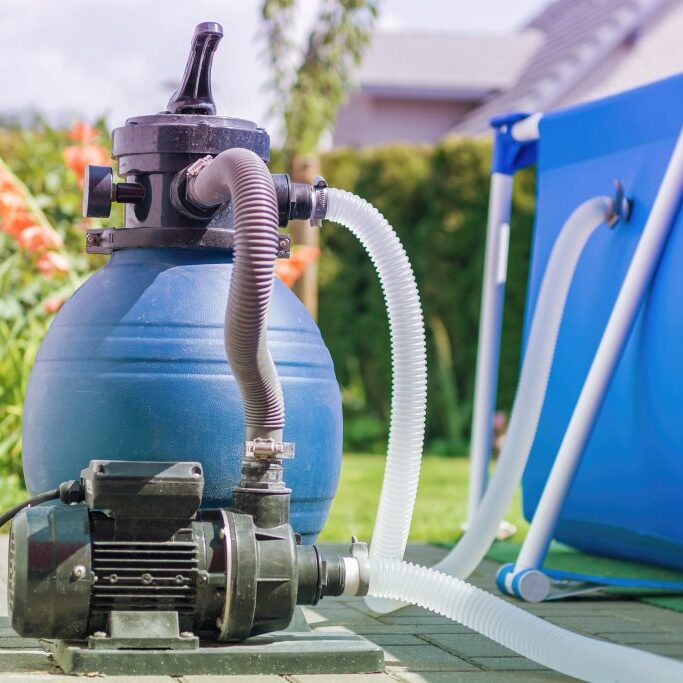
How to Change & Clean the Filter Media
How to Clean & Change a sand filter How to Change the Filter Media Sand should be changed in the filter every 3-5 years. However, if the sand is not cleaned once per season the sand may need to be changed much more often than that. 1 Turn off the pump. 2 Take the drain…

How to Clean a Pool Salt Cell
How to Clean a Salt Cell It is important to maintain a clean salt cell so chlorine can be continuously produced. Salt cells that have a lot of scale or calcium build up cannot effectively produce sanitizer and often create flow issues within the pool system. You should check your salt cell weekly to ensure…
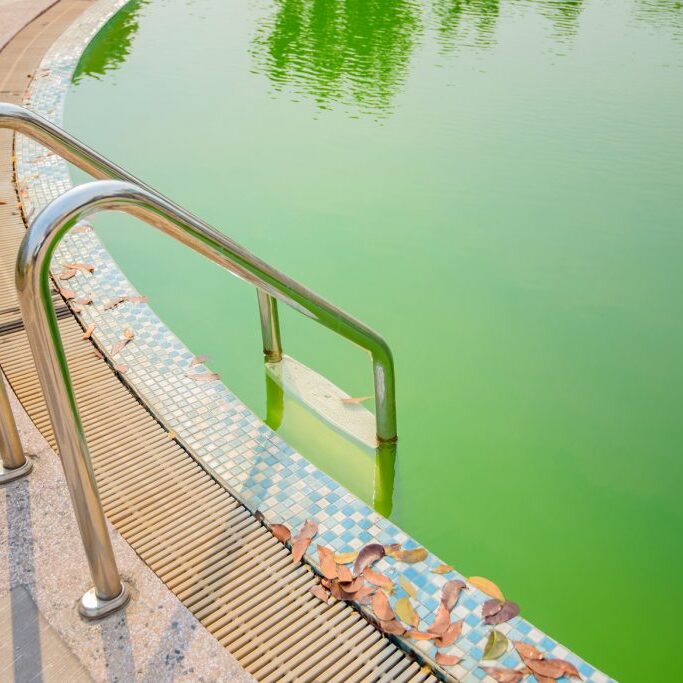
How to Treat and Prevent Cloudy or Foggy Pool Water
How to Treat Extremely Cloudy or Foggy Water How to Treat Extremely Cloudy or Foggy Water Bring a pool water sample into Buds Spas and Pools for water balance analysis. Adjust pH and/or chlorine levels as recommended by the water lab. Follow Option A, B or C depending on the level of clarity in the…
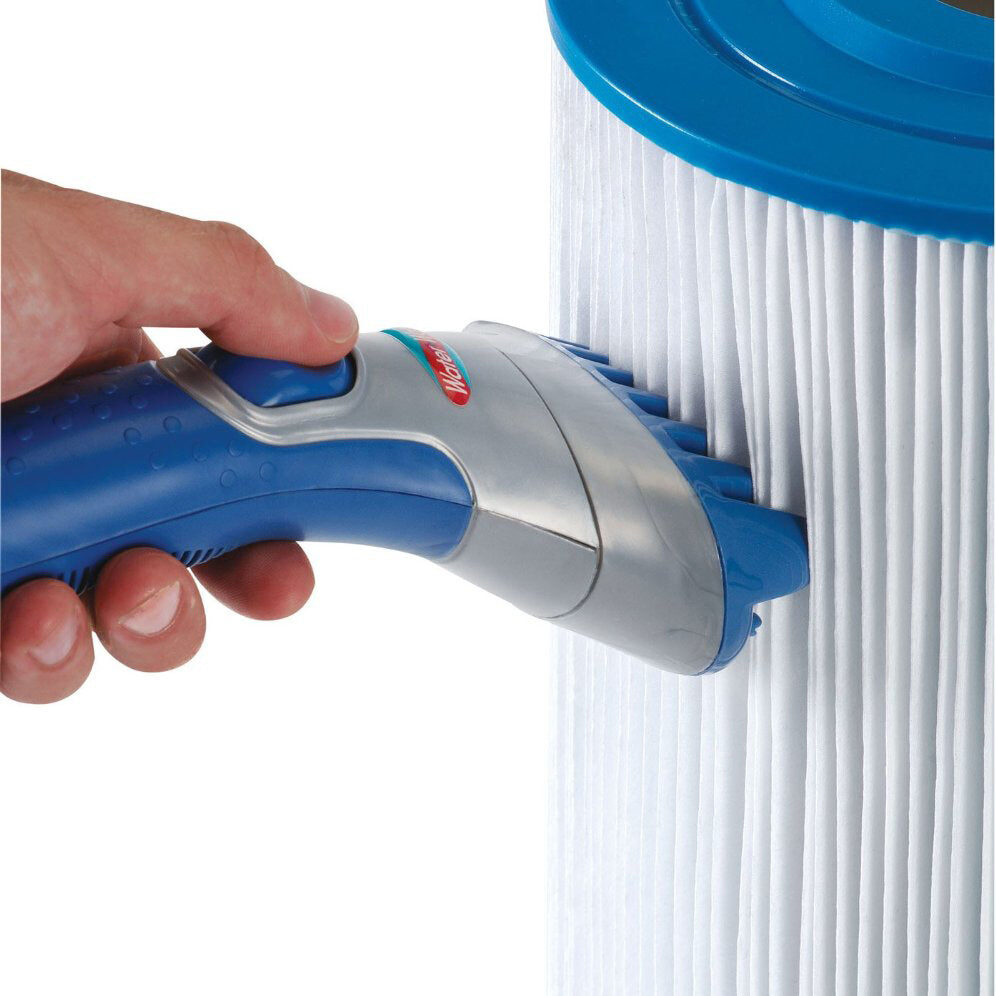
Pool Filter Cartridge Cleaning Instructions
How To Clean A Pool Filter Cartridge When should a cartridge element be cleaned? For hot tubs and swim spas, establish a routine cartridge cleaning schedule based on the amount of spa usage. This should include rinsing the cartridge weekly (or more frequently with heavy use), as well as using Rapid Action Filter Cleanse every…
